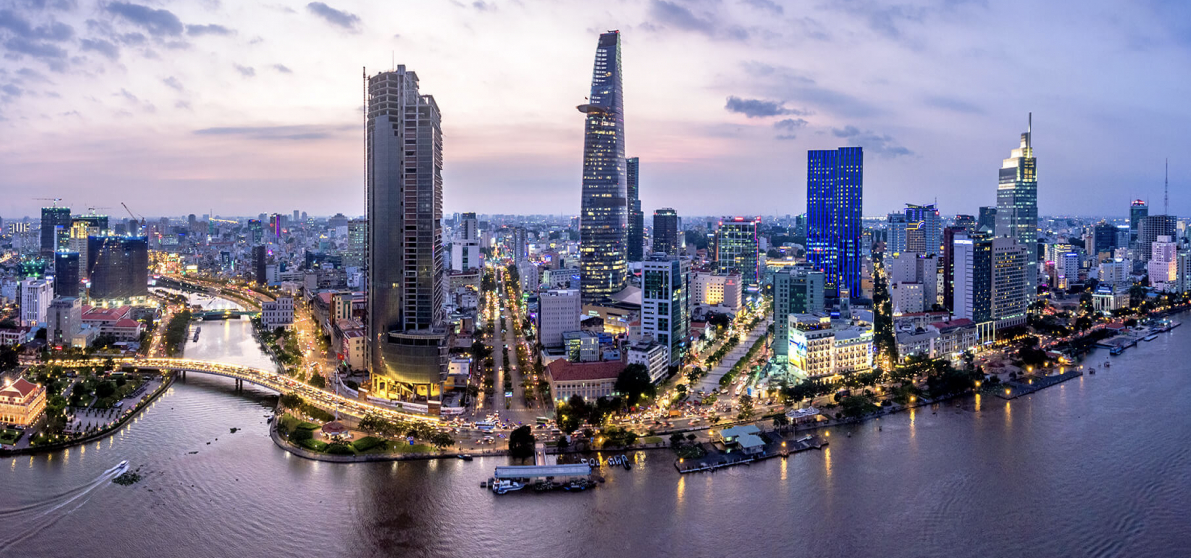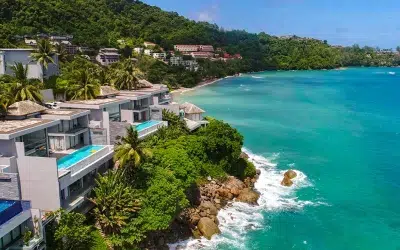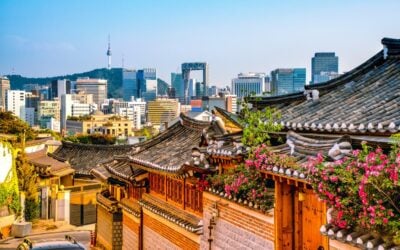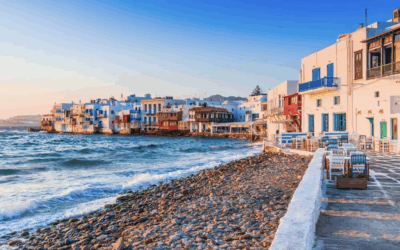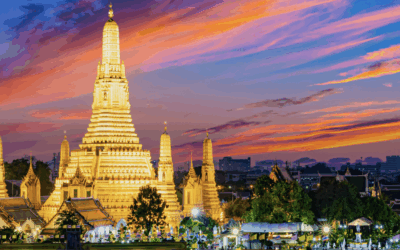Vietnam is steadily becoming a sought-after destination for retirees seeking a vibrant, affordable, and culturally rich lifestyle.
With its breathtaking landscapes, warm climate, and remarkably low cost of living, the country offers a unique opportunity for those looking to make the most of their golden years.
However, retiring in Vietnam requires careful planning, particularly due to the lack of a dedicated retirement visa.
This guide will walk you through everything you need to know about retiring in Vietnam, including visa options, cost of living, healthcare, housing, and potential challenges.
By the end, you’ll have a clear understanding of what it takes to make Vietnam your new home.
Why Retire in Vietnam?
Vietnam’s allure lies in its remarkable blend of affordability, natural beauty, and rich cultural heritage.
Imagine waking up in a beachfront apartment, sipping a cup of locally brewed coffee, and enjoying a slower pace of life—all for a fraction of the cost in Western countries.
For retirees on a fixed income, Vietnam provides a quality of life that’s hard to match elsewhere. The cost of living in Vietnam is significantly lower than in most developed nations.
For example, a meal at a local restaurant might set you back just $2, while a three-course dinner for two at a mid-range restaurant costs around $15.
Rent in Vietnam is equally affordable, with a one-bedroom apartment in the city center available for as little as $300 per month, depending on the location.
Even utilities and healthcare costs are modest, making Vietnam an ideal destination for those looking to stretch their retirement savings.
Beyond affordability, Vietnam offers a rich cultural experience. From the bustling streets of Hanoi and Ho Chi Minh City to the serene beaches of Da Nang and Nha Trang, the country is a tapestry of diverse landscapes and traditions.
The people are known for their hospitality, and the cuisine—a mix of fresh herbs, bold flavors, and influences from French and Chinese cooking—is a delight for the senses.
Visa Options for Retirees
One of the key challenges for retirees in Vietnam is the lack of a dedicated retirement visa.
Unlike neighboring countries like Thailand or Malaysia, Vietnam does not offer a straightforward visa pathway for retirees.
However, there are several alternatives that retirees can explore to legally reside in the country.
The most popular option is the Vietnam Investor Visa (DT Visa), which is well-suited for financially independent individuals. This visa is divided into four categories, depending on the amount of capital invested.
For example, the DT1 Visa requires a capital contribution of at least VND 100 billion ($125,000 USD) and offers a one-year validity. This visa is ideal for retirees who are willing to make a substantial financial commitment in Vietnam.
Another viable option is the Vietnam Business Visa (DN Visa), which allows foreigners to reside in the country for up to 12 months.
Many retirees choose to set up a small, low-maintenance business—such as a consultancy or a rental property operation—to qualify for this visa.
While this option requires some administrative effort, it provides a pathway for long-term residency.
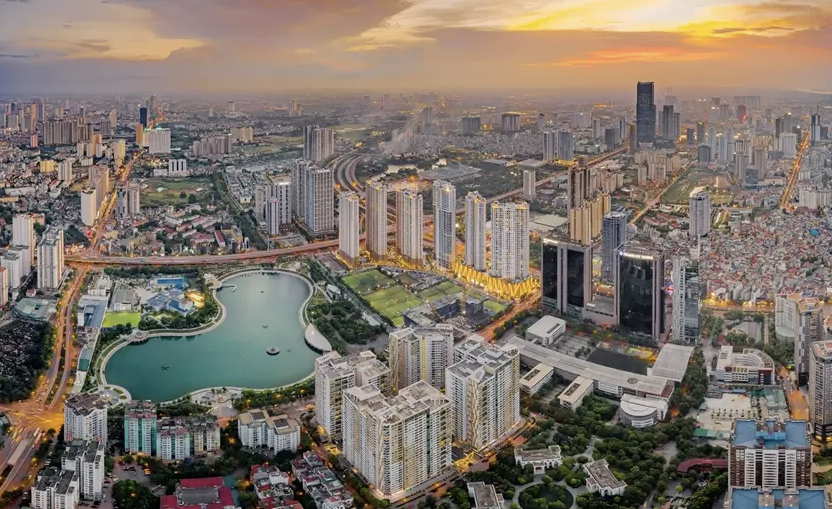
Hanoi, Vietnam’s capital city, is not only a major tourist destination with many historical and cultural sites; it’s also the country’s medical hub full of the best hospital, doctors, and med-techs available.
For those who prefer a less complicated approach, the Tourist Visa is an option, although it requires frequent renewals.
Tourists can stay for up to three months at a time, after which they must either leave the country for a “visa run” or apply for an extension.
While this method is less ideal for long-term stays, it remains a popular choice for retirees who value flexibility over permanence.
Cost of Living in Vietnam
Vietnam’s low cost of living is one of its main attractions for retirees.
Whether you’re dining out, renting an apartment, or seeking healthcare services, your money will go much further here than in most Western countries.
Accommodation costs vary depending on the city and type of property. In bustling cities like Ho Chi Minh City and Hanoi, a one-bedroom apartment in the city center typically costs between $300 and $1,000 per month.
Outside the city center, prices drop significantly, with similar apartments available for as little as $250 per month.
For those looking to purchase property, foreigners can buy apartments under a 50-year lease agreement, although they cannot own the land itself. This makes renting a more flexible and hassle-free option for most retirees.
Food is another area where retirees can save. A bowl of pho or a banh mi sandwich from a local vendor costs just $1–$2, while a meal at a mid-range restaurant might set you back $10–$15.
Imported goods, such as wine and cheese, are more expensive, but locally sourced products are incredibly affordable.
Utilities, including electricity, water, and garbage collection, cost around $70 per month for an average apartment, and internet services are both reliable and inexpensive.
Healthcare in Vietnam
Healthcare in Vietnam is a mix of public and private services. While the public healthcare system is affordable, it often lacks the quality and comfort that many expats are accustomed to.
As a result, most retirees opt for private healthcare, which offers modern facilities, English-speaking staff, and shorter wait times. A consultation at a private hospital typically starts at $30, and health insurance costs around $60 per month for a comprehensive plan.
Vietnam has a universal healthcare system that integrates both Eastern and Western medicine. However, the quality of care varies significantly between rural and urban areas.
In major cities like Hanoi and Ho Chi Minh City, private hospitals provide excellent care, while rural areas often lack modern facilities.
Retirees are advised to stick to urban centers for their healthcare needs and to invest in a good insurance plan that covers private hospital visits.
Retirement Housing Options
Finding the right place to live is a crucial part of retiring in Vietnam.
The country offers a wide range of housing options, from beachfront villas to modern city apartments.
However, foreigners cannot own land outright, as all land is owned by the state.
Instead, they can purchase apartments under a 50-year lease agreement, which can be renewed upon expiration.
Popular areas for retirees include Da Nang, a coastal city known for its clean beaches and modern amenities, and Hoi An, a charming town with preserved heritage architecture.
Nha Trang is another favorite, offering a mix of vibrant city life and serene coastal views.
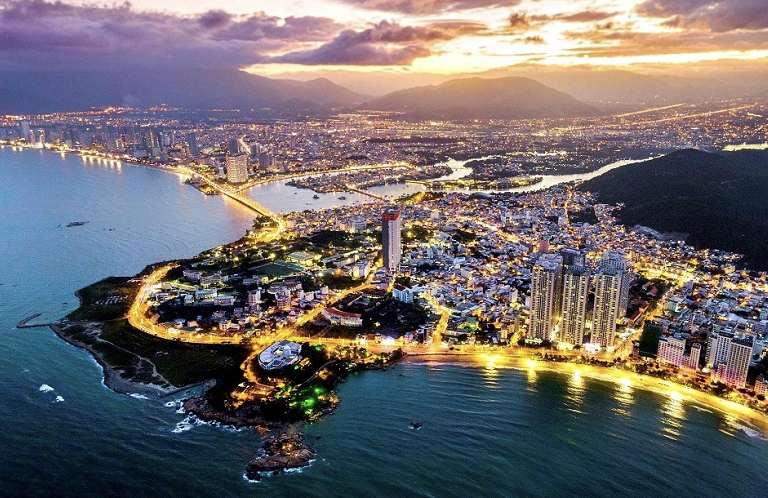
The seaside city, Nha Trang, is another favorite of retirees in Vietnam for its peaceful coastal charm and vibrant nightlife.
For those who prefer a more urban lifestyle, Ho Chi Minh City and Hanoi provide all the conveniences of modern living, though they come with higher levels of air pollution and traffic congestion.
Expat Taxes in Vietnam
Vietnam’s tax system is relatively straightforward for retirees.
Residents are taxed on their global income at rates that generally do not exceed 5%, except for income from gifts or inheritance, which is taxed at 10%.
Non-residents, on the other hand, are taxed at a flat rate of 20% on income earned within Vietnam.
It’s important to note that U.S. citizens must continue to file a tax return with the IRS, even if they live abroad.
Consulting with a tax advisor who is familiar with both U.S. and Vietnamese tax laws can help retirees navigate their obligations and avoid double taxation.
Should You Retire in Vietnam?
Let’s be frank: while Vietnam offers many benefits, it’s not without plenty of challenges for retirees.
Air pollution is a significant issue in major cities like Hanoi and Ho Chi Minh City, which can be problematic for retirees with respiratory conditions.
Language barriers can also pose difficulties as a foreign retiree, particularly in rural areas where English is less commonly spoken.
Legal and bureaucratic hurdles are another challenge. Navigating Vietnam’s visa and property laws can be complex, requiring patience and, often, the assistance of a local professional.
Additionally, the lack of a dedicated retirement visa means retirees must rely on alternative visa options, which can be less convenient and more expensive.
With all that said though, retiring in Vietnam offers a unique opportunity to enjoy a high quality of life at a fraction of the cost in Western countries.
From its affordable housing and healthcare to its rich culture and stunning landscapes, Vietnam is a paradise for those looking to make the most of their retirement years.
Just remember: this is a decision that will require careful planning and an understanding of the challenges involved.

